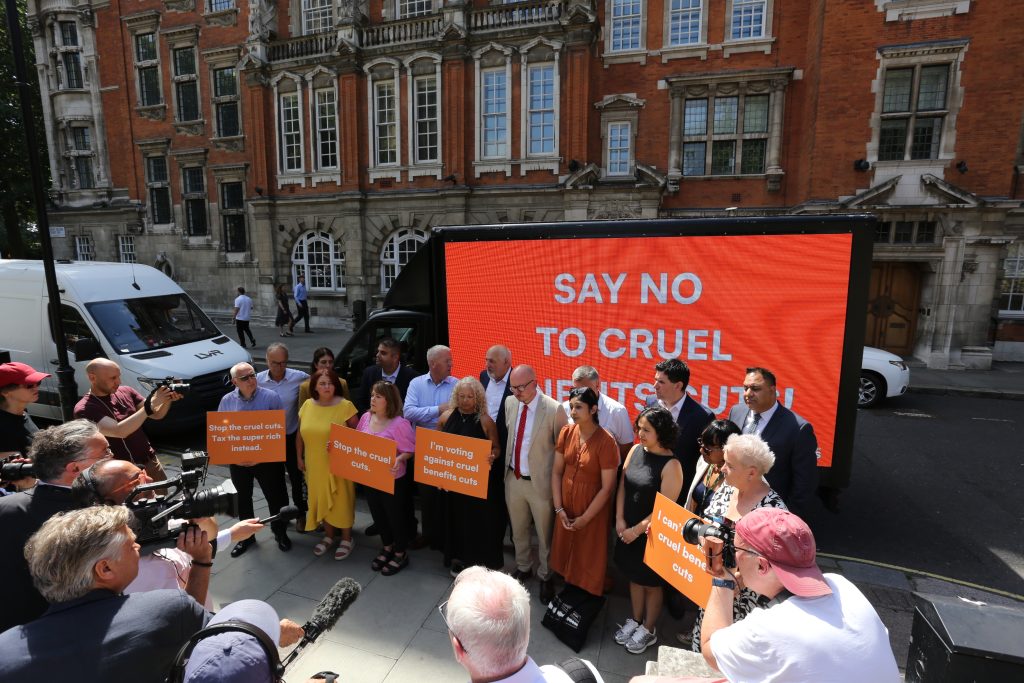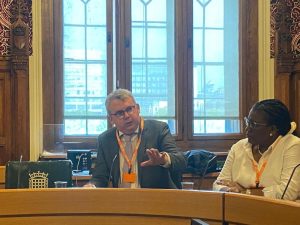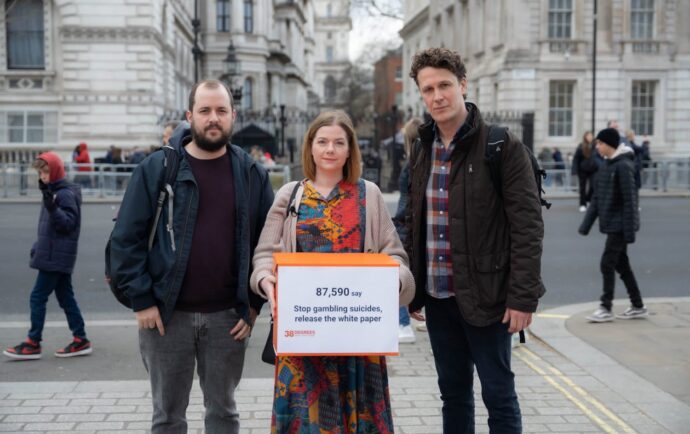
Mar 3rd, 2011
Interview with Nicholas Shaxson: Part One
By RamziS
Nicholas Shaxson, tax expert and author of ‘Treasure Island’, a book described as the “most important of the year”, noticed 38 Degrees’ campaign against tax dodging. He asked if 38 Degrees would be interested in doing an interview with him. The office team then asked 38 Degrees members wanted they wanted to know about tax-below he has answered some of the questions members have asked him:

Photograph by 38 Degrees
Gerry Smith: Could you please explain the difference between tax avoidance and tax dodging? If the only difference is one is legal and one is illegal how do we pressurise our MP’s into changing the tax laws so both are illegal?
Nicholas Shaxson: Technically, the main distinction that is made is between tax evasion – which is by definition illegal – and tax avoidance, which is by definition legal, but also by definition involves getting around the spirit of the law: what our democratic representatives intend when they set up tax laws. Between the poles of evasion and avoidance there is a huge grey area, a spectrum between the legal and the illegal. Multinational corporations that use tax havens tend to inhabit this grey area.
Tax dodging is a popular term which to me means the whole lot: evasion, avoidance and the grey area in between. I prefer an alternative term, which is tax cheating. I think that effectively puts the finger on exactly what is going on here.
Lauren Young: How much could we save if they just paid their tax?
NS: The so-called UK tax gap – taxes that are recognised but go unpaid, outright tax evasion, and tax avoidance – is estimated at 40 billion pounds per year by HMRC; and at 120 billion per year by Richard Murphy,who has done a lot of pioneering work on this. It would never be possible to collect all this, but many billions, and possibly tens of billions, is a reasonable estimate of what might be possible. This could not go all the way towards making up for the huge cuts now being instigated – but it could go a long way. It is a genuine and big alternative to cuts.
Avril Wooster: If someone resides in U K, has a business in UK, how can they not pay their due taxes in UK?
Robin Rowles: Is there any reason why our taxation laws can’t say “If you live in the UK, work in the UK, do business in the UK, or as an individual or as a corporate entity take any income from the UK, you pay UK taxation”?
NS: Generally, companies can’t cut their tax bills to zero, because the government puts in defences against offshore tax avoidance. Company lawyers put in place new schemes to get around those defences, though, and the government creates new defences against those. And so on. This game of cat and mouse is one reason why tax systems get so complex.
Take a business that is resident in the UK and which has its headquarters here, and which has subsidiaries all over the world. In theory, should pay taxes on all its worldwide income, with allowances made for taxes already paid to other countries. But it’s not as simple as that.
Imagine the company has a subsidiary in a tax haven, which earns $100 million but pays no local tax (because it’s in a tax haven.) In theory, the UK resident company should pay UK taxes on its tax haven profits. But there is a big fly in this ointment: if it structures its tax affairs in certain ways, it may only pay those taxes in practice once it has repatriated those profits back to the UK. Meanwhile the money that it keeps out there in the tax haven will sit there, untaxed. This is known as deferred tax – tax that should in theory be paid one day, once the income is repatriated to the UK – but in practice it often never gets paid at all. It has been called a ‘tax-free loan from the government, with no repayment date.’ One third of the UK’s largest companies pay no tax.
With respect to individuals, the big gift that the UK makes to wealthy people is the so-called “non-dom” rules, under which certain classes of people who are resident in the UK but not “domiciled” in the UK (this is a rather vague test that depends on where your heart lies) get to pay tax on their UK income only, but pay no tax on their worldwide income. So of course, vastly wealthy people come to London, make sure all their income is realised overseas, and get all the benefits from living in our country while making sure that other people pay for all the services they rely on. The non-dom rule should be simply scrapped.
You can follow Nicholas Shaxson on twitter at: http://twitter.com/nickshaxson
Nicholas Shaxson also recomends Richard Murphy’s Blog
and this Tax Justice Blog


















